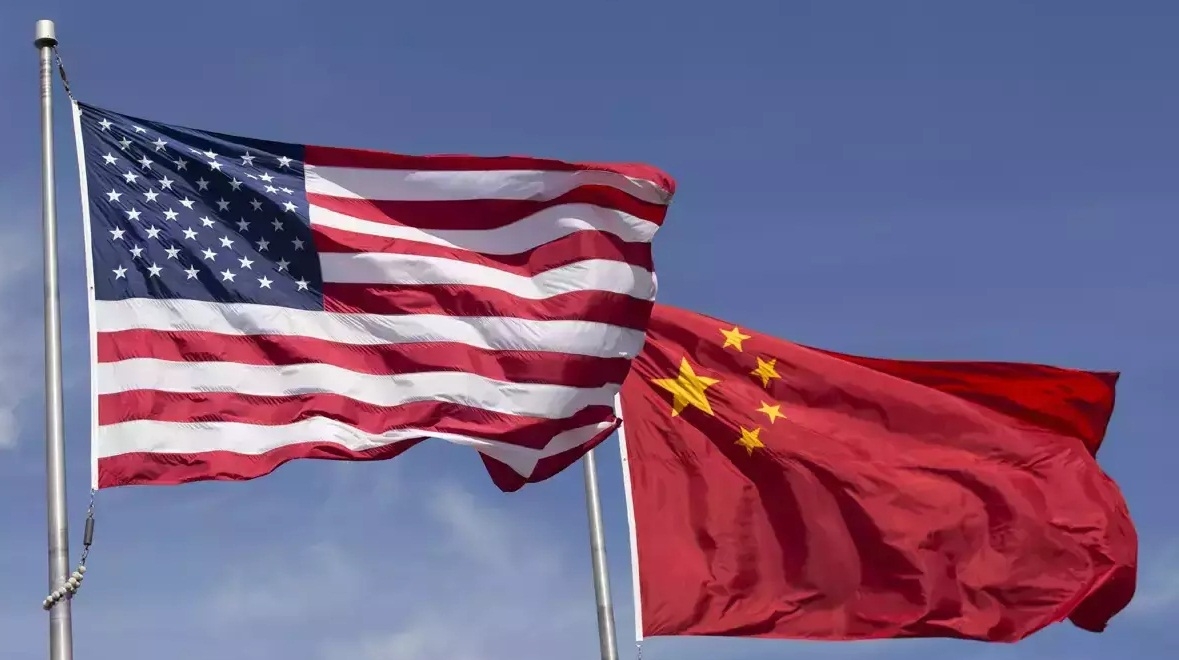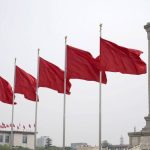This is being done under Chinese President Xi Jinping’s goal for the nation to rival the United States as the world’s pre-eminent economic and military power….reports Asian Lite News
China’s main intelligence agency, the Ministry of State Security, under its growing ambition to come on par with the CIA, has lately built itself through wider recruitment, including of American citizens and has also sharpened itself through better training, a bigger budget and the use of advanced technologies, New York Times reported.
This is being done under Chinese President Xi Jinping’s goal for the nation to rival the United States as the world’s pre-eminent economic and military power.
In the meetings during the pandemic, the Chinese spies complained that surveillance cameras tracking foreign diplomats, military officers and intelligence operatives in Beijing’s embassy district fell short of their needs.
They asked for an AI programme that can create instant dossiers on every person of interest in the area and analyse their behaviour patterns. They also proposed feeding the AI programme information from databases and scores of cameras that would include car licence plates, cellphone data, contacts and more.
NYT reported, citing internal meeting memos, that the AI-generated profiles would allow the Chinese spies to select targets and pinpoint their networks and vulnerabilities.
The Chinese agency, known as the MSS, once rife with agents whose main source of information was gossip at embassy dinner parties, is now going toe-to-toe with the Central Intelligence Agency in collection and subterfuge around the world.
Today, the Chinese agents in Beijing have what they asked for: an AI system that tracks American spies and others, NYT reported, citing US officials.
At the same time, as CIA spending on China has doubled under the Biden administration, the United States has sharply stepped up its spying on Chinese companies and their technological advances.
Notably, the competition between the American and Chinese spy agencies harks back to the KGB-versus-CIA rivalry of the Cold War. In that era, the Soviets built an agency that could pilfer America’s most closely held secrets and run covert operations while also producing formidable political leaders, including Russian President Vladimir Putin.
However, a notable difference here is that China’s economic boom and industrial policies is helping the MSS is able to use emerging technologies like AI to challenge American spymasters in a way the Soviets could not.
“For China in particular, exploiting the existing technology or trade secrets of others has become a popular shortcut encouraged by the government,” said Yun Sun, director of the China program at the Stimson Center, a Washington-based research institute. “The urgency and intensity of technological espionage have increased significantly.”
The MSS has intensified its intelligence collection on American companies developing technology for both military and civilian uses, while the CIA, in a change from even a few years ago, is pouring resources into collecting data on Chinese companies developing AI, quantum computing and other such tools.
David Cohen, the agency’s deputy director, said that under President Biden, the CIA was making investments and reorganising to meet the challenge of collecting on Chinese advances. The agency has started both a China mission center and a technology intelligence center.
“We’ve been counting tanks and understanding the capability of missiles for longer than we have been as sharply focused on the capability of semiconductors or AI algorithms or biotech equipment,” the New York Times quoted Cohen as saying in an interview.
But some policymakers say privately that the effort is still falling short and that Chinese companies and the military are surprising the US government with their advances.
In China, the status of the Ministry of State Security has only grown under Xi, “who prizes bold intelligence action and a powerful security state.”
In October 2022, the Communist Party promoted MSS head, Chen Wenqing, to be the party’s top security official and a member of the 24-member Politburo, the first spy chief in decades to ascend to that body.
His replacement, Chen Yixin, a longtime aide to Xi, has raised the public profile of the MSS. He has also been given a broad mandate, which encompasses leading a crackdown on American and other foreign companies that conduct corporate investigations of Chinese firms, including for military ties and human rights violations, the New York Times reported.
The ministry has the foreign responsibilities of the CIA. and the domestic mandate of the FBI, combined with an authoritarian edge.
The MSS is charged with carrying out intelligence collection and operations overseas, as well as limiting foreign influence within China and clamping down on so-called subversive activities. Its mission is avowedly political: to defend the Communist Party against all perceived threats.
The current minister, Chen, has repeatedly emphasised loyalty to Xi. In June, he told officers to “wholeheartedly embrace” Xi’s “core” status.
Under Chen, the ministry is embracing social media to spread messages about threats. “The United States’ multifaceted obstruction, containment and suppression will only make China more battle-hardened and self-reliant,” it said on a new WeChat account.
The MSS is making its own aggressive moves abroad, including recruiting a far-right Belgian politician and harassing ethnic Chinese critics of the party. One agent hired a local private investigator to physically attack a Chinese American candidate for US Congress on Long Island, according to a Justice Department indictment. Another man is accused of helping to set up an organisation in New York that lured in dissidents.
The central government in Beijing established the Ministry of State Security in 1983 during a reshuffling of security units. For decades, the agency struggled to win favour with party leaders. Its Chinese rival, the intelligence services of the People’s Liberation Army, had greater resources and better tradecraft, especially in cyberespionage, the New York Times reported.
The Ministry of State Security gradually improved its tactics, got bigger budgets and even built business expertise. Some MSS officers who would be working undercover as business people were sent to private sector offices for training, said Peter Mattis, a former CIA analyst and co-author of a book on Chinese espionage.
Chinese agents also expanded their foreign recruitment targets, including among US citizens.
US intelligence agencies were alarmed after discovering that the Shanghai MSS had recruited an American student in China, Glenn Duffie Shriver, and got him to apply to the CIA and State Department. Shriver was sentenced in 2011 to four years in prison.
“It was a big sign of improved tradecraft from MSS, for the first time targeting non-Chinese Americans and attempting penetration of the US intelligence community,” said John Culver, a former US intelligence analyst.
According to the NYT, the case has had far-reaching consequences. It made US counterintelligence officers more suspicious of applicants for US government jobs who had studied in China or had contacts there, and it turned their attention to MSS provincial bureaus.
The bureaus are their own fiefs, based outside of the agency’s national headquarters, which is in the secretive Xiyuan compound in northwest Beijing. Under Xi, they have become more aggressive in their operations overseas, with some specialising in recruiting and running informants in the United States.
The bureau in Jiangsu Province, next to Shanghai, is another one focused on getting American secrets, particularly defence technologies, US officials said.
Its officers recruited Ji Chaoqun shortly before he went to the United States in 2013 to study engineering at the Illinois Institute of Technology in Chicago, according to the Justice Department and court documents. His MSS handler, Xu Yanjun, got him to provide the names of at least nine people in the United States for the Chinese spy agency to try to recruit to get aerospace and satellite technologies.
Ji eventually joined the US Army Reserves, where he aimed to get a security clearance so he could eventually apply to work in the CIA, FBI or NASA.
He was arrested in Chicago in 2018 and sentenced this year to eight years in prison. Xu, his handler, was arrested in Brussels in 2018 in a related operation run by the FBI, becoming the first MSS agent to be extradited to the United States.
Unlike Russian operatives, MSS case officers generally avoid working undercover in the United States, preferring instead to run agents or assets from outside and recruit online, including using job ads with no apparent ties to China, US officials said.
Around 2018, a Singaporean agent said that the MSS “created a fake consulting company that used the same name as a prominent US consulting firm and posted online job ads under that company name,” said Michael C Casey, director of the National Counterintelligence and Security Center, New York Times reported.
The MSS often directly hires from universities, especially for core positions, according to a review of more than 30 online job ads from the agency. In recent years, it has sought technology experts, including hackers, according to two people with knowledge of the recruiting efforts.
Chen, the minister of state security, wrote in an article earlier in September that “core technologies” remained under the control of other nations, and that reaching “technological self-reliance” was an urgent task.
Chinese government experts openly admire the collection capabilities of American spy agencies and their technology. Chinese intelligence journals often carry out studies examining US operations.
NYT reported, citing a recent study of US national security services by the China Institutes of Contemporary International Relations, the main MSS research institute, said, “Drawing on an in-depth assessment of the relevant methods of the United States, China should choose what works and dispense with what does not.”
The MSS has also been elevating experts in the United States. Early this year, one such analyst, Yuan Peng, president of the main research institute, appeared under a new name, Yuan Yikun, as a vice minister of the ministry itself. Earlier in his career, Yuan often mixed with American scholars, some of whom saw him as a cool-headed observer of Washington.
One of the first major decisions made by CIA Director William J Burns, was to create the China Mission Center. The idea was to ensure that stations all over the world, not just in Asia, focused on collecting intelligence on China.
Burns took the step after a strategic review that was led by Michael Collins, a career intelligence officer. Under Burns, Collins was appointed director of strategy, with a mandate to help improve the agency’s work on China.
The China challenge requires the United States “to be smart in critical domains like biotechnology and semiconductors,” said Collins, who now leads the National Intelligence Council, a coordinating body across spy agencies. “We have to be better.”
For a sharper understanding of which technologies China is targeting, the CIA has begun asking American executives and scholars for insights about what Chinese companies are trying to develop. American universities and companies, often approached by Chinese investors and researchers, have knowledge of the specific technologies, NYT reported, citing US officials.
But officials said it was important to bring in people with deeper knowledge of China’s commercial and technological ambitions. For now, the spy agencies are struggling to get information to policymakers as quickly as they want it.
Last year, a Canadian firm, TechInsights, revealed that China’s leading chip maker, Semiconductor Manufacturing International Corporation had developed a seven-nanometer chip.
The US government was unaware of the advance and was surprised that the Chinese firm had made the leap so quickly, said Jimmy Goodrich, an expert on Chinese technology who advises the RAND Corporation.
“The intelligence community is just not set up institutionally to be adept at understanding China’s commercial and tech issues,” he said. “It’s hard to do. And more important, you really have to think like a Wall Street analyst, market researcher, talking to everyone up and down the supply chain.”
Part of the problem is that US intelligence agencies favour information from satellites, intercept programs and human spies. One senior US official said analysts were overlooking valuable insight from non-classified sources in China, according to the New York Times.
“The US intelligence community can do amazing things on focused targets,” said Mattis, the former CIA analyst. “But it sometimes can struggle with broad-based awareness, like understanding China’s technological prowess.” (ANI)
ALSO READ: Stormy Start for US Congress in 2024














